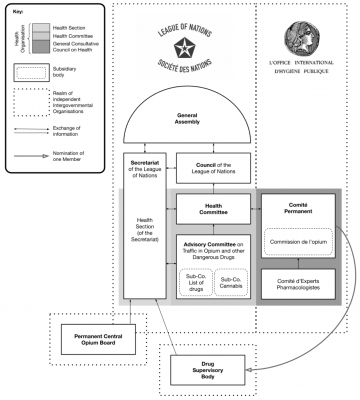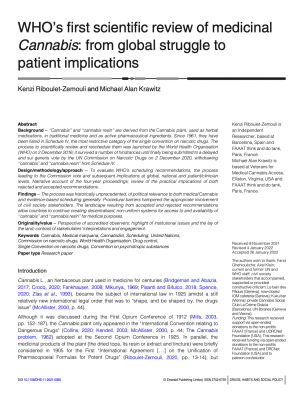Sandrine Kott, Eva-Maria Muschik and Elisabeth Roehrlich (ed.), International Organizations and the Cold War. Competition, Cooperation and Convergence, London, Bloomsbury, 2025.
The post-WWII era was a time of superpower confrontation
and antagonistic bloc politics, but it was also a period in which
organized internationalism reached its peak as both an ideological
value and a political practice. This open access volume explores
how international organizations affected the evolution and nature
of Cold War rivalries, and how they in turn were shaped by them.
In seeking to understand the role that international organizations
have played as sites of confrontation, this volume also highlights
their role as spaces for mediation and negotiation, particularly
for middle-size powers and colonized or newly decolonized
countries. Through multiple perspectives, based on a diverse
array of historical sources, the authors collectively explore how
international organizations were able to bridge and move beyond
the Cold War divide by promoting common causes and shaping
common scientific knowledge, communities, and practices.
Rather than focusing exclusively on western-dominated
institutions within the UN system which have received the most
scholarly attention to date, International Organizations and the
Cold War highlights the role of lesser-known groups such as
the Paris-based International Child Center, the Prague-based
International Union of Students and historical actors such as
Soviet public health experts and Chinese development specialists.
Sandrine Kott is Professor of History at the University of Geneva,
Switzerland. Her most recent book A World More Equal, An
Internationalist Perspective on the Cold War (2024) studies the Cold
War through the lenses of international organizations.
Eva-Maria Muschik is a historian and Assistant Professor at the
University of Vienna, Austria. Her book, Building States, on the UN
Secretariat, development and decolonization was published in 2022.
Elisabeth Roehrlich is Associate Professor of History at the
University of Vienna, Austria. Her book Inspectors for Peace on
the International Atomic Energy Agency was published in 2022.




